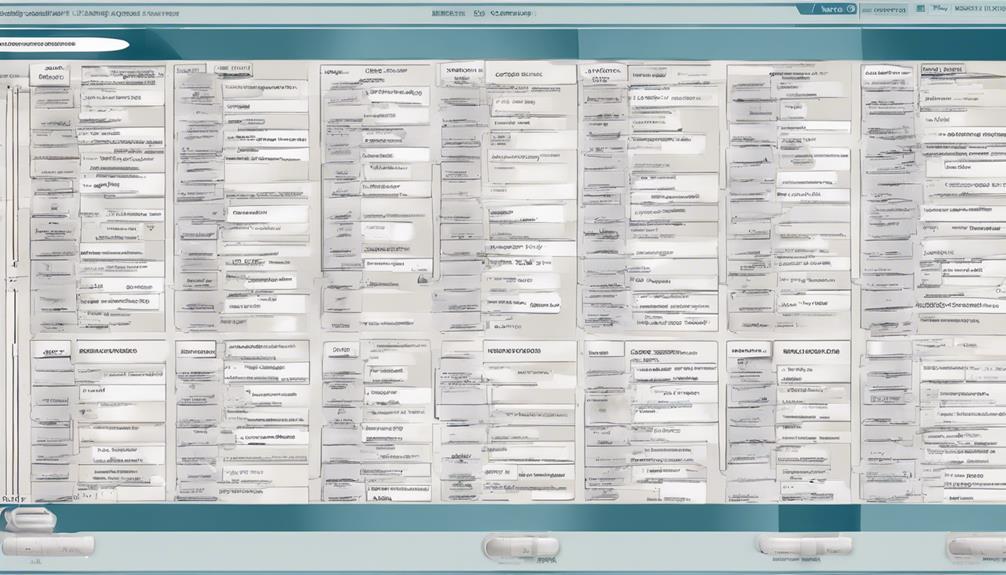If your child shows inconsistent responses to sounds, reacts only sometimes or not at all, or doesn’t turn toward voices or noises as expected, these are red flags in their hearing development. Signs like delayed speech, not recognizing familiar words by 12 months, or lack of interest in sounds can also indicate potential issues. Pay attention to these cues, as early intervention can make a big difference—continue with us to understand more about what to watch for.
Key Takeaways
- Inconsistent or absent responses to sounds at expected ages may indicate hearing concerns.
- Lack of recognition of familiar voices or failure to turn toward sounds suggests possible hearing issues.
- Delayed speech development, such as not saying simple words by 12 months, can signal auditory delays.
- Reacting unpredictably or showing limited reactions to different sounds may be a red flag.
- Absence of sound awareness or reactions during early milestones warrants professional hearing evaluation.

Understanding how your child’s hearing develops can help you recognize normal milestones and identify potential concerns early. One of the first signs to look for is auditory responsiveness – how your child reacts to sounds in their environment. Around birth to three months, they should turn their head toward familiar sounds, respond with startled cries or movements when they hear loud noises, and show signs of recognizing your voice. If your baby isn’t responding to sounds by this age, it could be a red flag that their hearing isn’t developing as expected. It’s vital to observe whether your child shows consistent reactions to different sounds, as this reflects healthy auditory responsiveness.
Watch for your baby’s responses to sounds early on to ensure healthy hearing development.
As your child grows, their ability to understand and process language becomes a key milestone. Typically, by around six months, babies begin to recognize common words and respond to their name. By 12 months, they might say simple words like “mama” or “dada” and understand basic instructions. If your child isn’t demonstrating these signs of language comprehension by the expected ages, it might indicate a hearing concern. For example, if they don’t turn toward familiar voices or don’t show interest in sounds, it could point to hearing difficulties that need addressing. Early identification allows for interventions that can support language development and prevent delays.
Another red flag involves inconsistencies in auditory responsiveness. If your child reacts to some sounds but not others, or their responses seem sporadic, this could suggest partial hearing loss or other issues. It’s important to note that hearing milestones are not just about hearing sounds but also about how your child processes and responds to them. If they seem to hear some sounds but ignore others, or if they don’t seem to recognize familiar voices, these are signs you should discuss with a healthcare provider. Recognizing the importance of ear and hearing health can guide timely action and intervention.
Monitoring how your child’s auditory responsiveness and language comprehension evolve helps you catch potential issues early. Delays or lack of progress in these areas aren’t always definitive, but they are signals that professional evaluation may be necessary. Hearing concerns can sometimes be subtle and develop gradually, so staying attentive to changes in your child’s reactions to sounds and understanding of language is vital. Early intervention can make a significant difference in your child’s communication skills and overall development, so trust your observations and seek guidance whenever you notice red flags.
Frequently Asked Questions
How Early Can Hearing Issues Be Detected in Infants?
You can typically detect hearing issues in infants as early as their first few months through routine hearing screening. Early detection is essential because it impacts language development, which begins almost immediately after birth. Regular screenings help identify potential problems quickly, allowing you to seek intervention sooner and support your child’s communication skills. The earlier hearing issues are identified, the better their chances for healthy language development.
Are There Genetic Factors Influencing Hearing Development?
When it comes to hearing development, you’re right to wonder if genetics play a role. Genetic predispositions and hearing inheritance can markedly influence how your child’s hearing develops. Some children are born with inherited conditions that affect hearing, so understanding family history is essential. Keep in mind, early detection and intervention can make a world of difference, so stay vigilant and consult a specialist if you notice any concerns.
What Are Common Causes of Hearing Delays in Children?
Hearing delays in children often stem from common causes like frequent ear infections, which can impair hearing over time. You might also notice a language delay, signaling possible hearing issues. Environmental factors and genetic predispositions can contribute as well. It’s important to monitor your child’s hearing and speech development closely, and consult a specialist if you observe any concerns, ensuring early intervention and support for ideal development.
How Effective Are Newborn Hearing Screenings?
You might think newborn hearing screenings are foolproof, but studies show they’re highly effective in early detection of hearing issues. While they primarily identify auditory processing problems, some cases may still be missed, emphasizing the significance of ongoing assessments. If hearing loss is detected, hearing aid options become essential, helping children develop speech and language skills. Early intervention ensures better outcomes, making these screenings a critical first step.
When Should Parents Seek Further Evaluation if Milestones Are Delayed?
If your child’s hearing milestones are delayed, you should seek further evaluation promptly. Early intervention and developmental assessments are vital for identifying hearing issues early on. Don’t wait if your child isn’t responding to sounds by six months or isn’t babbling by nine months. Early action can lead to better outcomes, so consult your pediatrician or a specialist to guarantee timely support and appropriate interventions for your child’s hearing development.
Conclusion
Just as the wise owl watches over the forest, staying alert to early hearing red flags guarantees your child’s healthy development. Recognizing missed milestones now can prevent future challenges, much like catching a shadow before it grows. Trust your instincts and seek help when needed—your attentiveness can turn the tide, guiding your little one toward a brighter, more harmonious future. Remember, every moment counts in ensuring they hear the world’s beautiful song.











